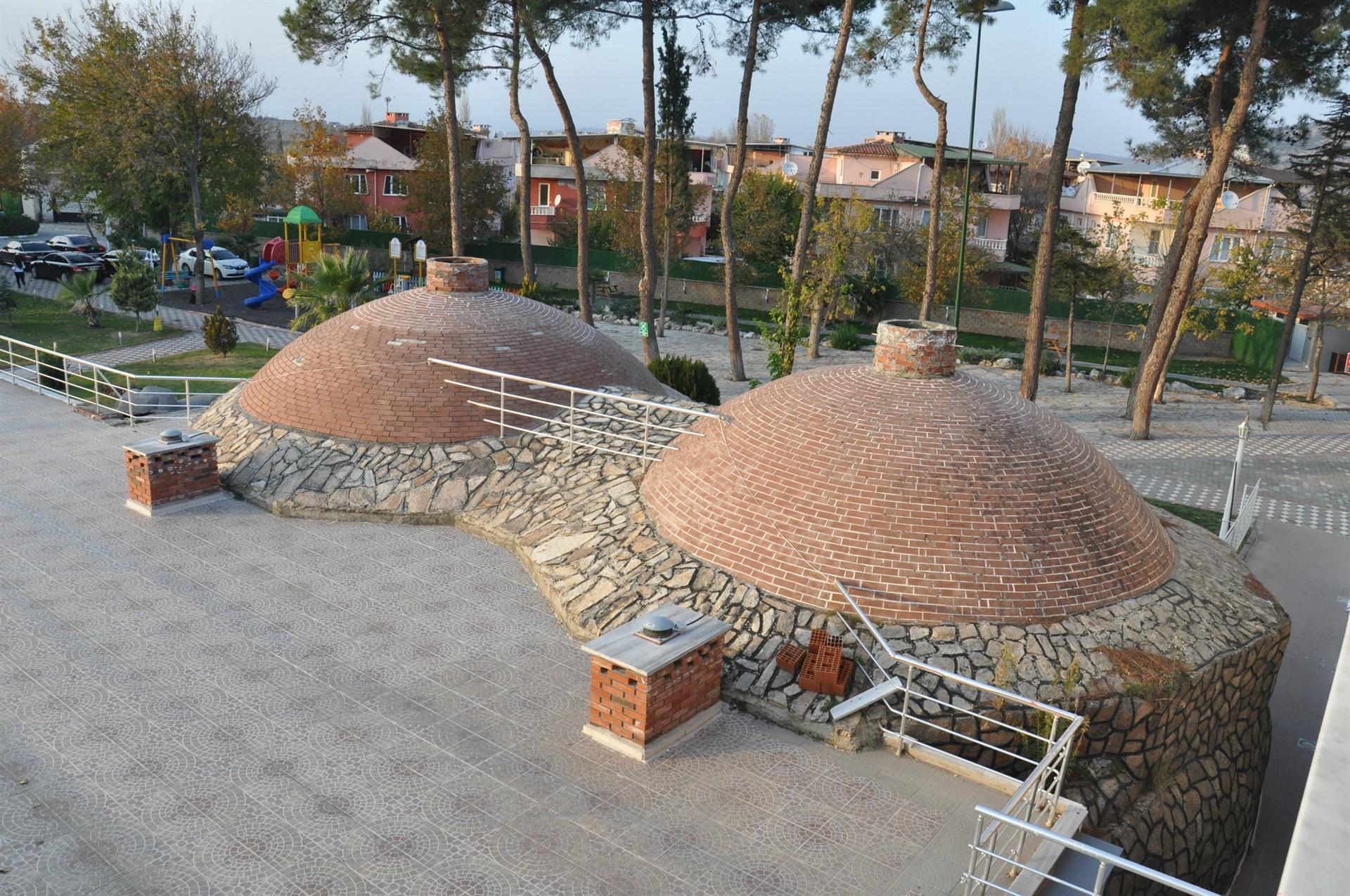Fame of Ottoman bath beyond borders
BALIKESİR - Anadolu Agency

The fame of a two-domed Ottoman bath in the western province of Balıkesir has gone beyond the borders of Turkey.
The thermal water in the bath, built by the vizier of the Ottoman Sultan Fatih Sultan Mehmet, Zağnos Mehmet Paşa, in the 15th century, has been drawing many people for its physically and meditatively healing waters.
Located in the garden of the Pamukçu Sedefne Thermal Hotel and operated by the Altıeylül Municipality, the bath has recently been hosting patients and visitors from Germany, Holland and France as well as locals.
The director of Pamukçu Sedefne Thermal Hotel, Mustafa Gökçe, said the bath in the facility had been built in the 15th century for camel trains, traders and soldiers in the region.
The bath’s thermal water is at 60 degrees centigrade and is being run by a thermal hotel owned by the Altıeylül Municipality.
Gökçe said the architecture of the bath had never changed, adding, “This bath was built with the cut stone method. It still maintains its original state, apart from some restorations. It serves men and women on an area of 500 square meters.”
After undergoing promotional works, the bath has been receiving many guests from Turkey and abroad.
“We have guests mostly from Istanbul, Ankara, and the provinces of İzmir, Bursa and Eskişehir. We host 20,000 - 25,000 guests on average every year,” he said. The facility, 12 kilometers from the city center, has 45 rooms, 120 beds and a half-Olympic pool.
Bath and thermal hotel
After the Karesi Beylic was taken by the Ottomans, a caravanserai was built in Eftelle – today’s Pamukçu – a place of important trade routes. This caravanserai had been one of the stops and an accommodation place for traders for centuries.
A Byzantine castle on İkizce Hills was restored and used by the Ottomans for many years. The Ottoman sultans’ sons, who worked as Balıkesir governors, accommodated in this castle from time to time. In this era, a hot water source was found on the route of the castle and the caravanserai. People believed that the water was healing and named it Bengi-su, which means the water of immortality.
















